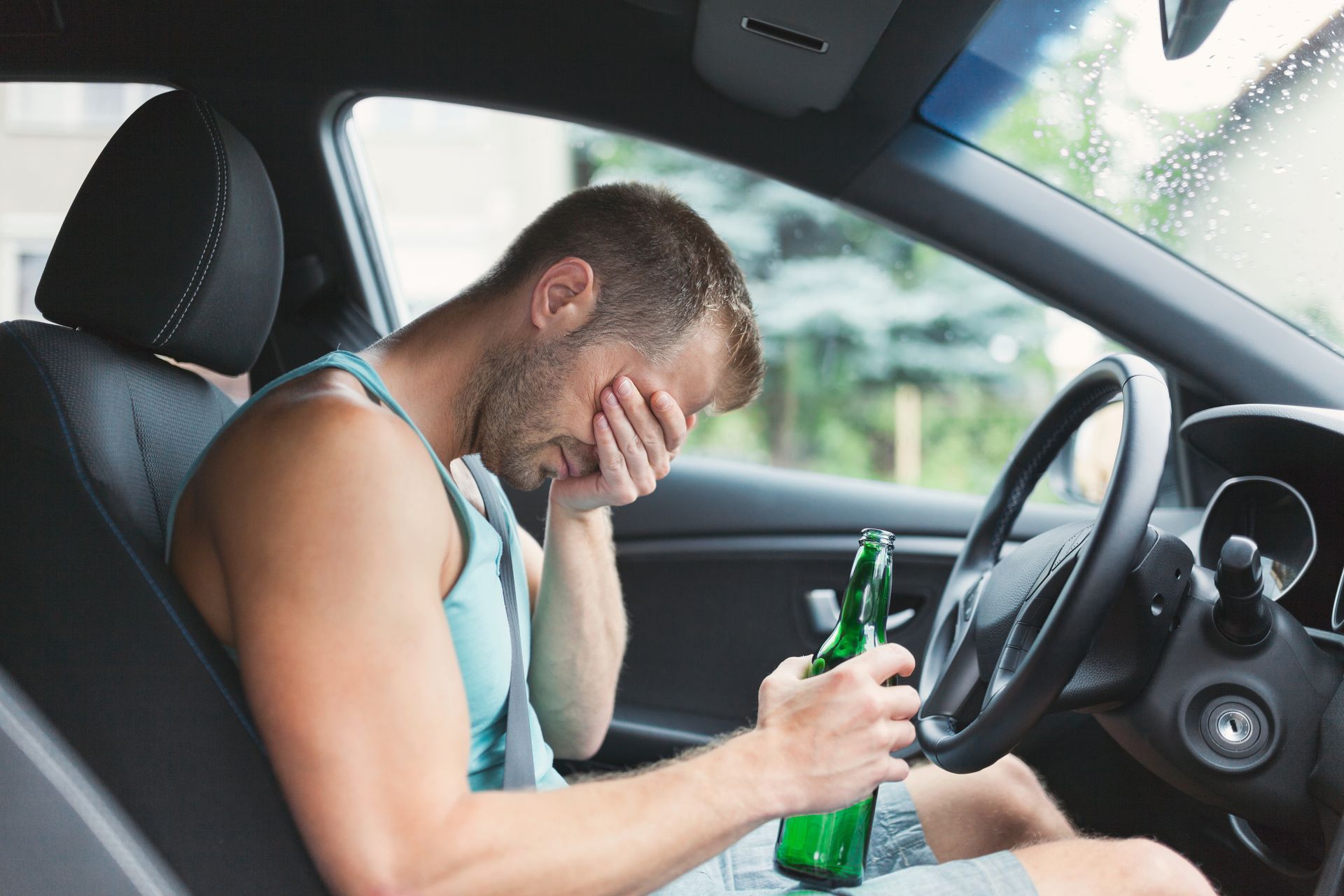Can You Be Arrested for DUI on Private Property in Arizona?

In Arizona, driving under the influence (DUI) laws apply equally to both public and private property. This means you can be arrested for a DUI even if you're on private property, such as your own driveway or a private parking lot. The key factor is whether you're deemed to be in actual physical control of the vehicle while impaired.
What Does “Actual Physical Control” Mean?
This concept is broader than just driving; it encompasses situations where an individual has the immediate ability to operate the vehicle. Some factors that play a role in this determination include:
- Position of the Driver: Sitting in the driver's seat suggests control.
- Location of the Keys: Having the keys in the ignition or within reach indicates potential to operate the vehicle.
- Engine Status:
An idling engine or accessories like air conditioning running can imply readiness to drive.
- Vehicle's Location: Where the vehicle is parked matters; for instance, being on or near a roadway versus safely off the road.
Some DUI arrest scenarios can be complex. For example, what if someone is sitting in a fully reclined front seat, with their keys in their pocket, trying to sleep it off in a bar parking lot? What if it’s summer so their keys were in the ignition so they could run the AC? Would that be viewed differently than someone lying down in their vehicle’s back seat?
An officer might arrest someone for DUI if they are sleeping in their front seat, but a prosecutor might not pursue charges if they don’t believe they can prove the driver was in actual physical control. That same officer might not arrest someone sleeping in the back seat of their vehicle.
How these scenarios play out depends on the officer involved, the prosecutor’s confidence in the strength of the evidence and the effectiveness of a DUI defense attorney.
What if a Police Officer Who Suspected You Were Drunk Driving Follows You Home?
This can be a complicated and legally dubious scenario for all parties involved. You can still potentially be arrested for DUI even if you’ve already arrived home and turned off your vehicle. Police don’t necessarily have to stop you in the act to allege that you were, minutes earlier, driving while intoxicated.
Proving that you were in actual physical control of a vehicle is much harder if the officer did not personally see you driving or pulling into your driveway. They would need to gather evidence to prove you were in control of a vehicle while intoxicated, which can be a labor-intensive process. However, it is possible for a motivated officer. Examples of evidence they may use include:
- Witness statements (such as another driver or a 911 caller) accusing you of driving drunk.
- The vehicle is still warm when the officer arrives at your home, indicating recent operation.
- You admit to having just driven home.
- Surveillance footage or other evidence shows you arriving home while impaired.
However, without clear evidence of driving, the case may be difficult to prosecute. Even if you were to face charges in this type of scenario, an experienced DUI attorney may be able to challenge some of the evidence, the timeline of events or law enforcement actions.
Can Police Force Their Way Inside Your Home if They Suspect You Were Drunk Driving?
It is typically not legally permissible for law enforcement to enter your home without your permission, even if they believe you were just driving while drunk. Law enforcement can only enter your home if:
- They have a warrant
- There are exigent circumstances
- You’ve given your consent for police to enter
If they have strong evidence that you just fled the scene of an accident and you refuse to exit your home, that may qualify as exigent circumstances. If they only suspect you of drunk driving but they have no definitive proof, and there are no exigent circumstances, they typically cannot legally force you to exit your home or enter your home without your permission.
If a person makes it inside and refuses to come out, officers usually need a warrant before making an arrest.
What Qualifies as Exigent Circumstances in Arizona?
The only scenarios in which law enforcement can enter a home without a warrant or the resident’s permission include:
- Preventing physical harm or protecting life If officers believe someone inside the home is in immediate danger (e.g., a domestic violence situation, medical emergency or active threat)
- Officers have reason to believe evidence is about to be destroyed before they can get a warrant
- A suspect flees into a home while actively being pursued for a crime
- There is an active fire, gas leak or another life-threatening emergency
Were You Charged With a DUI in Phoenix Despite Not Being in Actual Physical Control of a Vehicle?
Many people in Arizona have been charged with DUI while in a parked vehicle. National College for DUI Defense (NCDD) board-certified criminal defense attorney Michael Alarid III has experience advocating in Phoenix DUI cases where there are questions regarding actual physical control. Call (602) 818-3110 for a free case evaluation.



